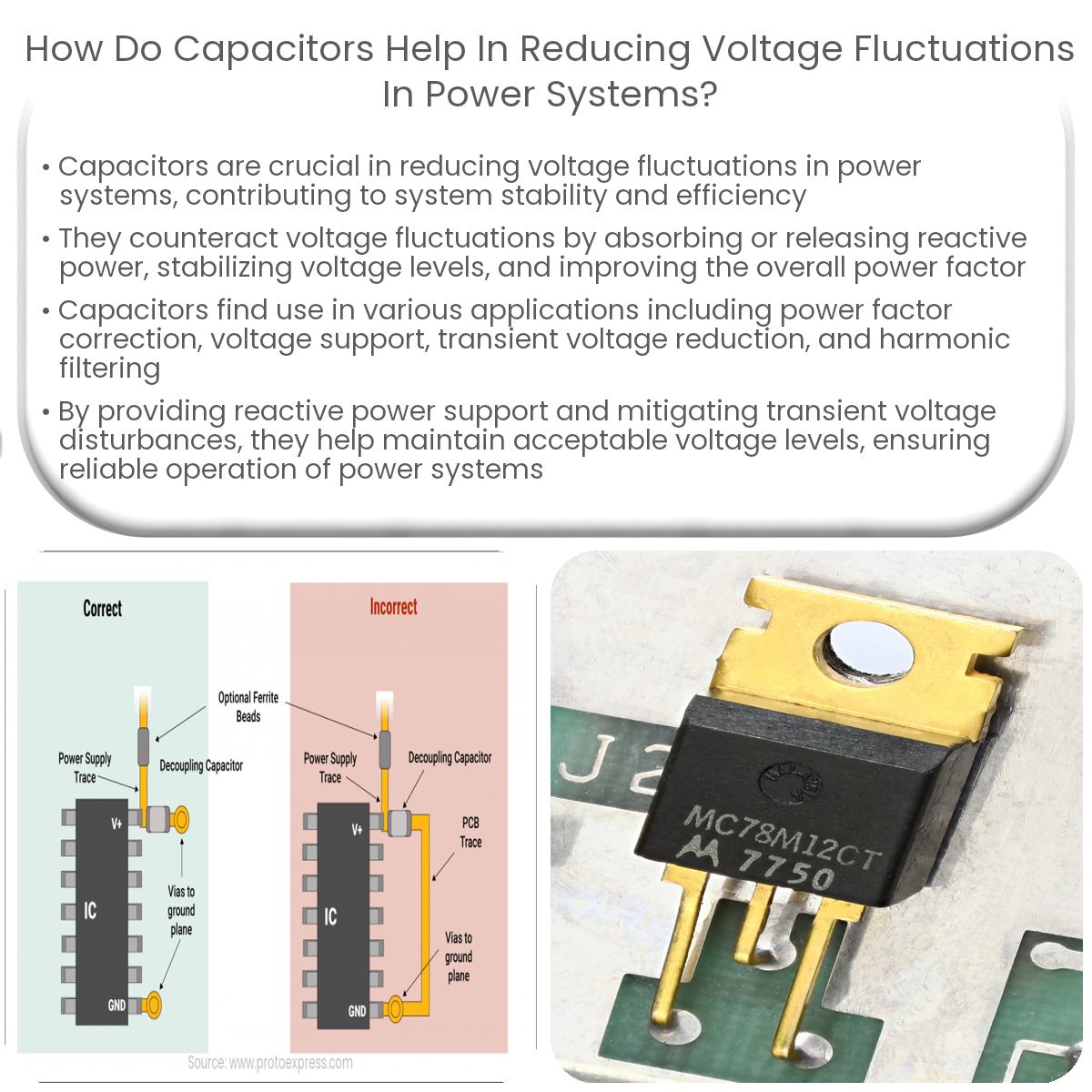Capacitors reduce voltage fluctuations by providing reactive power support, improving power factor, mitigating transient voltage disturbances, and filtering harmonics.
Role of Capacitors in Reducing Voltage Fluctuations in Power Systems
Voltage fluctuations in power systems can lead to instability, reduced efficiency, and increased wear on equipment. Capacitors play a crucial role in minimizing these fluctuations and ensuring the stable operation of power systems. This article discusses how capacitors help reduce voltage fluctuations in power systems and their various applications.
How Capacitors Reduce Voltage Fluctuations
Capacitors are passive electronic components that can store and release electrical energy. They possess the unique ability to react to changes in voltage by absorbing or releasing reactive power. In power systems, capacitors can be used to counteract voltage fluctuations by stabilizing the voltage levels and improving the system’s overall power factor.
When connected in parallel with a power system, capacitors draw leading reactive current, which can be used to compensate for lagging reactive power typically caused by inductive loads, such as motors and transformers. By providing leading reactive power, capacitors help maintain voltage levels within acceptable limits, reducing the risk of voltage fluctuations and ensuring the stable operation of the power system.
Applications of Capacitors in Power Systems
Capacitors are widely used in power systems for various applications, including:
Conclusion
Capacitors play an essential role in reducing voltage fluctuations in power systems, contributing to system stability, efficiency, and longevity. By providing reactive power support, improving power factor, and mitigating transient voltage disturbances, capacitors help maintain voltage levels within acceptable limits and ensure the reliable operation of power systems. Their versatile applications make them invaluable tools for power system engineers and operators seeking to optimize system performance and minimize voltage-related issues.


